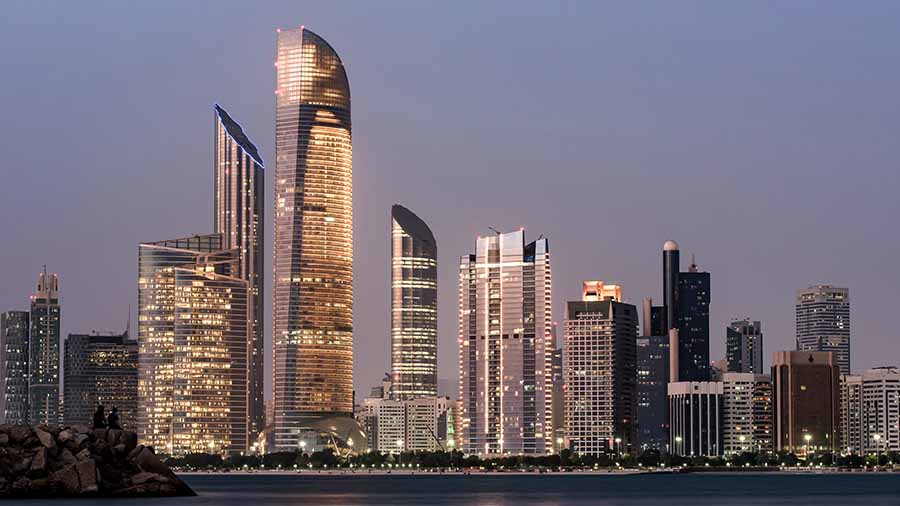Given the diversity of business opportunities available, understanding the different types of business structures in the UAE is essential for anyone considering setting up an enterprise.
Each business type offers unique benefits, along with regulatory, financial, and operational implications. From Limited Liability Companies (LLCs) to Free Zone establishments, each structure serves a particular purpose and caters to specific business needs. The choice of business structure not only affects tax obligations and regulatory requirements but also influences factors like ownership restrictions, access to capital, and operational flexibility.
This article aims to serve as a practical guide for entrepreneurs, investors, and established business owners by providing a comprehensive comparison of the different business types available in the UAE.
|
Business Structure |
Ownership |
Liability |
Business Scope |
Pros |
Cons |
|
Sole Proprietorship |
Single owner |
Unlimited personal liability |
Mainland and some free zone activities |
Full control, simple setup |
High personal risk, owner liable for debts |
|
Limited Liability Company (LLC) |
2-50 shareholders |
Limited to share in the company |
A broad range of activities in the UAE |
Limited liability, flexible ownership, full UAE market access |
More complex setup, annual audits required |
|
Civil Company |
2 or more licensed professionals |
Unlimited personal liability |
Professional services only |
Retains professional autonomy, suitable for specific professions |
Requires local agent for expatriates |
|
Public Joint Stock Company (PJSC) |
Min. 10 founders, shares offered publicly |
Limited to share in company |
Large-scale operations, publicly listed |
Access to substantial capital, public trading |
Stringent regulations, higher setup and governance costs |
|
Private Joint Stock Company |
2-200 shareholders, private shares |
Limited to share in company |
Large operations, not publicly traded |
Retains control, structured governance |
No public share issuance, shareholder limits |
|
Free Zone Establishment (FZE) |
Single shareholder (individual/company) |
Limited to business assets |
Activities within the free zone only |
100% foreign ownership, no local sponsor needed |
Restricted to free zone operations, banking challenges |
|
Free Zone Company (FZC) |
2+ shareholders |
Limited to business assets |
Activities within the free zone only |
100% foreign ownership, suitable for partnerships |
Restricted to free zone operations, more administrative work |
|
Branch of a Foreign Company |
Owned by foreign parent company |
Liabilities extend to parent |
Free zone operations, some mainland with local agent |
Simplifies UAE market entry, full control by parent |
Liabilities affect parent company, no independent status |
|
Representative Office |
Owned by foreign parent company |
Liabilities extend to parent |
Market research and promotion only |
Cost-effective, builds brand presence |
Cannot generate revenue or trade directly |
|
Offshore Company |
100% foreign ownership |
Limited to company assets |
International operations, no UAE trade |
High confidentiality, no office required, low cost |
|
Summary of business establishment options in the UAE
When establishing a business in the UAE, foreign investors can choose from several options, each offering distinct regulatory structures and benefits. The following approaches are some of the business establishment options investors can choose from:
- One common approach is working with a local agent or distributor, which allows foreign companies to enter the market without a physical presence, leveraging the local expertise and connections of a UAE-based partner.
- Alternatively, investors can set up a local entity, either on the mainland for broader market access or within a free zone for tax benefits and full ownership. Offshore entities offer additional options for international operations.
- Joint ventures (JVs) also appeal to foreign investors by pairing them with a local firm, enabling shared resources, reduced risk, and valuable market insights, typically with local majority ownership to meet regulatory requirements.
- Foreign investors may also consider acquiring an existing UAE business, though this requires navigating restrictions on foreign ownership and thorough due diligence.
- Franchising presents another attractive entry strategy, especially in popular sectors like food and beverage, retail, and health and fitness. Franchising allows foreign brands to enter the UAE under a recognized name while partnering with local franchisees to manage regulatory compliance and market reach.
The UAE’s regulatory framework consists of multiple jurisdictions—mainland, free zones, and offshore areas—each offering specific advantages and limitations based on business activities, ownership requirements, and tax incentives. The choice of jurisdiction will determine the most suitable establishment option, as each jurisdiction is tailored to different types of business operations, ownership structures, and market access requirements.
For example, selecting a mainland entity allows businesses to operate anywhere in the UAE and access the local market directly, while free zones offer full foreign ownership, streamlined processes, and tax benefits but often restrict companies from conducting direct business in the UAE market. Offshore jurisdictions, on the other hand, provide flexibility for international operations without requiring a physical presence in the UAE. Understanding these business jurisdictions and their regulatory frameworks is essential for investors to align their chosen business model—be it a local entity, joint venture, acquisition, or franchise—with the right jurisdiction, maximizing growth potential and ensuring regulatory compliance in the UAE.
Legal form of business structures explained
Mainland entities
Here’s a closer look at the most prominent business types in the mainland UAE.
Sole Proprietorship
A sole proprietorship in the UAE is a business structure owned entirely by a single individual, who has full authority over the business and its operations. This model is popular among freelancers, consultants, and small business owners who seek a simple setup with minimal bureaucratic complexity. In the UAE, foreign nationals can establish sole proprietorships in some sectors, particularly in the free zones, though they may need a local agent for specific activities within the mainland.
Pros
The sole proprietorship structure grants complete control, allowing the owner to make all business decisions independently, enjoy all profits, and manage operations according to personal preferences.
Cons
However, this autonomy comes with significant personal liability: the owner is fully responsible for all business debts and obligations, risking personal assets in the event of financial setbacks. This high level of liability can be a disadvantage compared to other structures that provide a liability shield.
Limited Liability Company (LLC)
An LLC in the UAE is a popular business structure that limits the personal liability of its owners to the extent of their share in the company. It’s highly flexible in terms of management and can conduct a wide range of commercial activities within the UAE. An LLC typically requires between two and fifty shareholders, each bearing limited liability for company debts.
Previously, mainland LLCs required UAE nationals to hold at least a 51 percent share; however, recent reforms allow full foreign ownership in specific sectors. This development has made LLCs an attractive option for international investors who want a broader presence in the UAE market while enjoying flexibility in ownership.
Advantages
LLCs are favored for their limited liability protection, shielding personal assets from business debts, which is a crucial advantage over sole proprietorships. Additionally, LLCs offer flexibility in management structure and the distribution of profits, enabling investors to customize agreements based on business needs.
Civil Company
A Civil Company in the UAE is a specific structure designed for licensed professionals in fields such as law, medicine, accounting, and engineering. Owned by two or more partners, this structure allows professionals to deliver their services without the need for corporate shareholders or investors, thereby preserving a personal approach to client relations.
Only specific professions can utilize the Civil Company structure, and each owner must hold a valid professional license. Additionally, while expatriates can establish Civil Companies, they may be required to partner with a UAE national who acts as a local agent. This model offers professionals a legitimate way to operate independently while adhering to UAE regulations tailored to their fields.
Public Joint Stock Company (PJSC)
A Public Joint Stock Company (PJSC) is a structure that allows a company to offer shares to the public and list them on the UAE stock exchange. PJSCs require a minimum capital investment (often set by regulatory authorities) and at least ten founding members, with a portion of shares publicly traded.
PJSCs are subject to stringent regulations due to their public trading status, and they must adhere to the corporate governance requirements established by the UAE Securities and Commodities Authority. Companies opting for this structure generally aim to raise substantial capital, making PJSCs ideal for large-scale enterprises seeking a significant public presence and investment.
Private Joint Stock Company
A Private Joint Stock Company, similar in structure to a PJSC, allows a business to divide capital into shares but restricts the public trading of these shares. Private Joint Stock Companies are often utilized by large family-owned businesses and private investors who seek a corporate structure without public shareholder involvement.
Comparison with PJSC Regarding Shareholder Limits
Unlike PJSCs, Private Joint Stock Companies have a maximum shareholder limit and do not require the issuance of shares to the public. This distinction makes Private Joint Stock Companies preferable for those seeking to retain full control over ownership and operations while benefiting from the structured governance of a joint stock model.
Free zone entities
Free Zone Establishment (FZE)
A Free Zone Establishment (FZE) is a legal entity designed for a single shareholder, which can be an individual or a company. The characteristics of this structure are:
- The FZE model allows only one shareholder, making it ideal for sole proprietors or single-entity investors.
- An FZE is a separate legal entity, so it operates independently of the individual’s personal assets, although liability may vary by free zone regulations.
- FZEs allow for 100 percent foreign ownership, which eliminates the need for an Emirati partner or agent.
- FZEs are easy to establish and manage, with fewer compliance requirements than multi-shareholder structures.
- The single shareholder enjoys full control, leading to quicker decision-making and alignment with personal business goals.
- Since FZEs are restricted to one shareholder, they are less suited to companies that plan to expand ownership or seek investment partners.
Free Zone Company (FZC)
The Free Zone Company (FZC) structure is designed for entities with multiple shareholders. The characteristics of this structure are:
- FZCs accommodate two or more shareholders, making them suitable for partnerships or small-group investments.
- Shareholders in an FZC generally enjoy limited liability, meaning their personal assets are protected in case of business debts or obligations.
- Like FZEs, an FZC is a distinct legal entity with its own identity.
- FZCs are suitable for partnerships and collaborative ownership, enabling businesses to pool resources and divide responsibilities.
- Multiple shareholders bring diverse expertise, investment potential, and business networks, helping the company expand its reach and resources.
- FZCs may require more administrative oversight and agreement among shareholders, which could slow down decision-making compared to an FZE.
- As in any partnership, disagreements may arise among shareholders, so clear shareholder agreements are essential.
Branch of a Foreign Company
A branch of a foreign company in a UAE free zone is not a separate legal entity, but an extension of a parent company that operates internationally. The characteristics of this structure are:
- The branch is wholly owned by the parent company, allowing it to retain full control over the UAE-based operations.
- Generally, branches are not required to fulfill minimum capital requirements, making this structure financially flexible.
- As an extension of the foreign company, a branch is not legally independent, meaning liabilities may pass back to the parent company.
- A branch allows a foreign company to operate directly within the UAE market, which can help establish a brand presence and expand market reach.
- Branches can operate under the parent company’s identity, which simplifies the operational and regulatory process.
- Since it operates as part of the parent company, branches benefit from streamlined governance and direct alignment with global business goals.
- Branches within free zones cannot conduct direct business activities in the UAE mainland without appointing a local agent or distributor.
- As an extension, any legal issues or liabilities incurred by the branch may impact the parent company.
Representative office
A representative office is a non-trading entity that allows a foreign company to establish a UAE presence solely for marketing, research, and networking purposes. The characteristics of this structure are:
- Representative offices cannot engage in direct business activities, sales, or revenue-generating operations in the UAE.
- The primary function of a representative office is to support the parent company through market research, client networking, and brand promotion.
- The parent company retains full control, and the office’s operations are closely aligned with corporate strategy.
- A representative office provides a cost-effective means for foreign companies to study the UAE market before fully committing resources.
- The office allows companies to establish a foothold, develop relationships, and build brand awareness in the UAE.
- The office operates under the direction of the parent company, ensuring consistent messaging and strategic alignment.
- Since representative offices cannot conduct sales or business transactions, they must rely on other UAE entities for distribution or revenue-related activities.
- For companies planning to engage directly with customers, a representative office does not provide the means to enter the market fully.
Offshore companies
UAE offshore companies, particularly through jurisdictions like RAK ICC, provide a streamlined, cost-effective solution for businesses focused on international operations, wealth management, and asset protection. With full foreign ownership, limited liability, and strong confidentiality, offshore entities offer numerous advantages for businesses looking to optimize their global structure. However, prospective investors should carefully assess their business needs and limitations, including restrictions on local activities and banking access, to determine if an offshore company aligns with their broader business strategy in the UAE.











